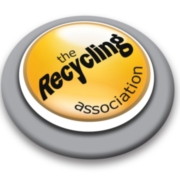Simply does it: Demystifying the recycling process
Simon Ellin, Chief Executive of The Recycling Association, gives an overview of the UK’s recycling
practices and processes; where we are and where we need to get to if we are to achieve better outcomes.
We are in unprecedented recycling times. In all the years I’ve worked in the recycling sector, I have never seen people so determined to do the right thing. But then neither have I seen the processes, practices and policies employed under such stringent scrutiny either.
On the plus side, all parties in the supply chain are upping their games. From retailers and packaging producers to reprocessors and local authorities, everyone is looking for the new solution that will allow us to continue with our consumer lifestyles while simultaneously reducing negative environmental impacts.
Innovation is all around. But we need to tread carefully to ensure we don’t just replace one problem with another further down the line.
At The Recycling Association, we believe that new solutions need to focus on simplifying the UK’s recycling practices and processes, as opposed to just adding another strata of options. And local authorities are a key voice in calling for greater simplicity as they are on the recycling frontline, dealing with consumer confusion, education, participation and inadvertent bin contamination.
I am in no doubt that complexity hampers the UK’s post-consumer recycling. But changes are afoot. Retailers, product manufacturers and packaging producers are now acutely aware that the materials they choose and the designs they agree can make or break recycling. They can be in no doubt that stream lining the number of materials used and cutting back on multi-material/composite designs will make it easier to achieve better outcomes.
Especially in the face of the UK Plastics Pact which has targeted 2025 as the year when:
• all plastic will be reusable, recyclable or compostable;
• 70% of plastic packaging will be recycled or composted;
• single use plastics are eliminated;
• and plastic packaging will contain, on average, 30% recycled content.
In some instances, changes that bring us all closer to these goals are happening quickly. For example, some supermarkets have banished black plastic from their shelves while others have increased the quantity of loose fruit and veg available and ditched film-based bags in favour of paper alternatives.
Longer term, the impacts of preferred lists of materials, such as that issued by Tesco, signifies a move towards sustainable simplification. Here they commit to only using packaging materials that are recyclable, giving them a clear view of those items that need to be redesigned and replaced.
For local authorities, and their associated recycling partners, this should make life much, much easier. Less product variation will make it easier to give definitive answers to householders about whether something can or cannot be recycled.
But that’s just the start. Less material variation should facilitate a pathway to a more unified collections approach whereby the same materials are collected regardless of location. If every local authority collected the same material consumer confusion and accidental contamination would be a thing of the past. Furthermore, it would make it easier to provide clear, consistent and easy to understand labelling.
Rather than telling the householder that a material is recyclable in some areas the label would have a simple “recycle me” or “No I cannot be recycled” message. Quite apart from helping people to get the right bin, it would also influence shopper decisions. It would also provide the bedrock for a more reliable, home grown, material supply network.
And this last point is critical as manufacturers’ desire to incorporate recycled content into new products and packaging is growing at a remarkable pace, with demand (and kudos) for home-grown supplies.
It is our belief that local authorities can become the architects of a new, simpler and more unified collections system that provides this circular feedstock for UK manufacturers. There’s a long journey ahead to get to this point, and I have no doubt that we’ll head off down some blind alleys along the way.
We know that operationally, things have never been more difficult. Ten years of austerity have taken their toll. But the supply chain is now more on board than ever before. Perhaps local authorities can maximise some of that support and enthusiasm to drive through a simpler system from which we can all benefit.
Simon spoke at the APSE Refuse, Recycling, Street Scene, Grounds and Parks Seminar 2018 on 18 October. For more information about the seminar, please contact Wayne Priestley on [email protected]


.png)



.png)